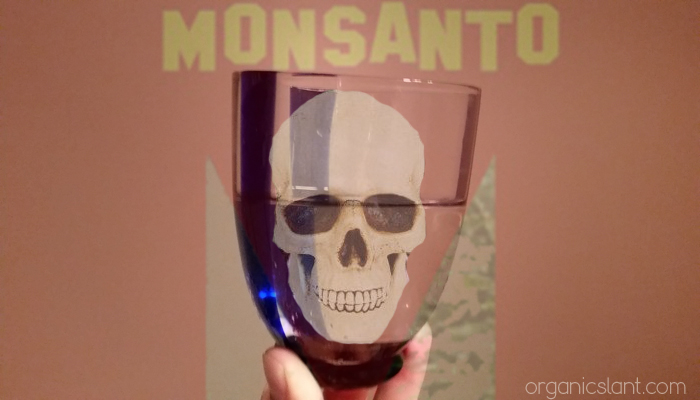 Controversial lobbyist who claimed that the chemical in Monsanto’s Roundup weed killer was safe for humans refused to drink his own words when a French television journalist offered him a glass.
Controversial lobbyist who claimed that the chemical in Monsanto’s Roundup weed killer was safe for humans refused to drink his own words when a French television journalist offered him a glass.
In a preview of an upcoming documentary on French TV, Dr. Patrick Moore tells a Canal+ interviewer that glyphosate, the active ingredient in Roundup herbicide, was not increasing the rate of cancer in Argentina.
“You can drink a whole quart of it and it won’t hurt you,” Moore insists.
“You want to drink some?” the interviewer asks. “We have some here.”
“I’d be happy to, actually,” Moore replies, adding, “Not really. But I know it wouldn’t hurt me.”
“If you say so, I have some,” the interviewer presses.
“I’m not stupid,” Moore declares.
“So, it’s dangerous?” the interviewer concludes.
But Moore claims that Roundup is so safe that “people try to commit suicide” by drinking it, and they “fail regularly.”
“Tell the truth, it’s dangerous,” the interviewer says.
“It’s not dangerous to humans,” Moore remarks. “No, it’s not.”
“So, are you ready to drink one glass?” the interviewer continues to press.
“No, I’m not an idiot,” Moore says defiantly. “Interview me about golden rice, that’s what I’m talking about.”
At that point, Moore declares that the “interview is finished.”
“That’s a good way to solve things,” the interviewer quips.
“Jerk!” Moore grumbles as he storms off the set.
According to EcoWatch, Moore was an early member of Greenpeace before becoming a consultant for “the polluting companies that Greenpeace works to change: Big Oil, pesticides and GMO agribusiness, forestry, nuclear power … anyone who puts up the money for truth-benders who appear to carry scientific and environmental authority.”
GMWatch noted that Moore has also recently used social media to cast doubt on the World Health Organisation’s conclusion that glyphosate is a probable human carcinogen.
Watch the video here below from Canal+.
Glyphosate poisoning
There is a reasonable correlation between the amount ingested and the likelihood of serious systemic sequelae or death. Advancing age is also associated with a less favourable prognosis.
Ingestion of >85 mL of the concentrated formulation is likely to cause significant toxicity in adults.
Gastrointestinal corrosive effects, with mouth, throat and epigastric pain and dysphagia are common. Renal and hepatic impairment are also frequent and usually reflect reduced organ perfusion. Respiratory distress, impaired consciousness, pulmonary oedema, infiltration on chest x-ray, shock, arrythmias, renal failure requiring haemodialysis, metabolic acidosis and hyperkalaemia may supervene in severe cases. Bradycardia and ventricular arrhythmias are often present pre-terminally.
Dermal exposure to ready-to-use glyphosate formulations can cause irritation and photo-contact dermatitis has been reported occasionally; these effects are probably due to the preservative Proxel (benzisothiazolin-3-one). Severe skin burns are very rare.
Inhalation is a minor route of exposure but spray mist may cause oral or nasal discomfort, an unpleasant taste in the mouth, tingling and throat irritation.
Eye exposure may lead to mild conjunctivitis, and superficial corneal injury is possible if irrigation is delayed or inadequate.
Management is symptomatic and supportive, and skin decontamination with soap and water after removal of contaminated clothing should be undertaken in cases of dermal exposure.
 Poisoned Fields – Glyphosate, The Underrated Risk?
Poisoned Fields – Glyphosate, The Underrated Risk? Monsanto’s Glyphosate Now Most Heavily Used Weed-Killer In History
Monsanto’s Glyphosate Now Most Heavily Used Weed-Killer In History Monsanto supported GMO corn study on Bt resistance backfires
Monsanto supported GMO corn study on Bt resistance backfires